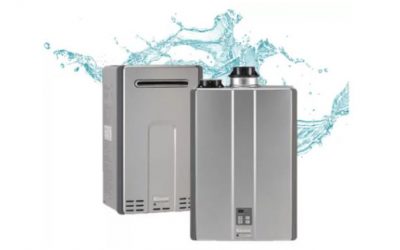Overview
Although some modern water heaters are labeled as energy-efficient, most of them lose over 20% of the energy they consume. Most the heat they produce escapes through their walls. If the heated water is not used immediately, then much of it will escape through the walls, a phenomenon is known as standby loss. Most have a lifetime of 13 years or less. You can improve the efficiency of a water heater by lowering its temperatures to reasonable settings. Furthermore, replacing the anode rod and flushing the sediment can also save energy. If you have undertaken all these measures, but you are still ending up with extremely high heating bills, then it is time that you installed this product for your use.
Functions and Benefits
Also known as on-demand water heaters, these units are designed to meet the needs of different sizes of households. They deliver water throughout the clock, by eliminating the standby losses experienced on storage tank heaters. They don’t store any heated water as compared to traditional water heaters. On the contrary, they deliver as it’s needed.
A water sensor fitted inside the unit is turned on is turned on and then the incoming water is accessed more so in terms of temparatures. It then sends a signal to a computer device located inside the unit. The computer device will then send a signal to the electric heating element or gas burner, thus turning on the heater. Water flowing through the heating element will then be heated rapidly depending on the set temperatures. The entire process takes place within a matter of seconds.
Estimated Energy Savings
Since there are no standby losses when using tankless water heaters, replacing your inefficient and old water heater and use this product will significantly reduce your energy bills. According to the U.S Department of Energy, it can save up to 30% of heater water costs as compared to traditional water heaters. However, actual savings usually depend on various factors, including the amount of hot water your family uses in a day as well as the efficiency of the new unit. Also, electricity tends to be more expensive as compared to gas when it comes to water heating. Therefore, if you want to realize maximum energy savings, then you should opt for a gas burner. Homes that use approximately 40 gallons of water per day realize savings of between 24% and 34% as compared to using a traditional water heater. On the other hand, homes that use approximately 80 gallons of water realize energy cost savings of between 8% and 14%. It’s advisable to buy the best tankless water heater from a reputable company.
Users are also advised to install tankless water heaters close to points of use. For example, it will make more sense if you install the unit near a washing machine, close to the bathroom or in the kitchen. Installing the unit close to the point of use reduces the amount of time and distance the water travels through the pipes when you turn on the faucet. Adopting this strategy leads to savings of approximately 27% to 50%. Also, tankless water heaters also tend to have a longer lifespan as compared to conventional units, which translates to additional savings.
Possible Downsides
As much as it is more beneficial in comparison to its counterparts, they also come with various setbacks. First, as much as they deliver a steady water stream, they may not produce enough for a large family or in areas of high demand. Also, if the hot water is used in various locations simultaneously, then its water may reduce significantly. For example, if a family member taking a shower will notice a significant decline in water temperature when another individual turns on the dishwasher. The good news is that these issues can be corrected by undertaking various cost-effective measures such as replacing old appliances, taking shorter showers, coordinating hot water use and washing clothes and dishes with hot water.
Final Word
Despite some few setbacks, tankless water heaters deliver significant cost savings when it comes to energy bills. By minimizing your energy demand, the product also reduces the consumer’s contribution to local, region or global air pollution. Furthermore, they are easier to repair, smaller, and more durable, thus reducing landfill waste. Replacing your traditional water heater with a tankless one is a major project. Therefore, take your time to evaluate your options.

